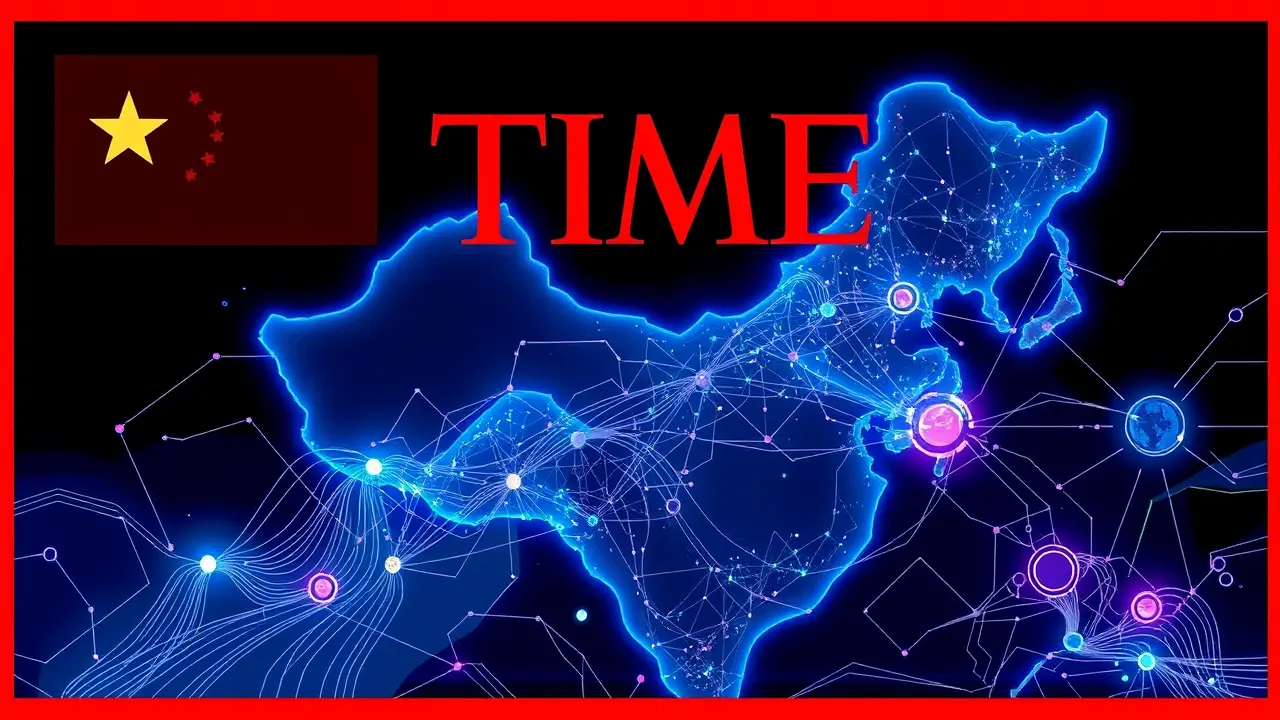
AIgenerative aiAI for Business Use
Geostar Pioneers GEO as AI Chatbots Disrupt Traditional SEO
DA
Daniel Reed
12 hours ago7 min read4 comments
The tectonic plates of digital discovery are shifting beneath our feet, and the tremors were felt last summer in Paris when Mack McConnell's parents independently turned to ChatGPT to orchestrate their Olympic itinerary. This wasn't merely a convenience; it was a paradigm shift, a signal that the foundational mechanics of how businesses are found online are undergoing their most radical transformation since Google's inception.McConnell, in an exclusive discussion with VentureBeat, recognized the profound implication: businesses were now being recommended by an intuitive, conversational interface that democratized access for all ages, winning a new kind of visibility lottery. This observation crystallized into Geostar, a startup emerging from stealth with Pear VC's backing and a mission to navigate the chaotic fragmentation of AI-powered search.The stakes are astronomical, with the global AI search engine market projected to explode from $43. 63 billion in 2025 to $108.88 billion by 2032, and Geostar itself is a case study in this velocity, fast approaching $1 million in annual recurring revenue within just four months with a skeleton crew of two founders. The disruption is quantified by Gartner's stark prediction: traditional search engine volume will plummet by 25% by 2026, a direct consequence of AI chatbots.Google's AI Overviews already command billions of monthly searches, and Princeton University research indicates that optimizing for these new systems can boost visibility by up to 40%. As McConnell articulates, the monolithic era of pleasing a single Google algorithm is over; businesses now face a hydra of interfaces—traditional search, AI Mode, Gemini, AI Overviews, plus the distinct architectures of ChatGPT, Claude, and Perplexity—each with its own idiosyncratic criteria for information retrieval and synthesis.This isn't an incremental change but a fundamental architectural overhaul. What Geostar and its competitors term Generative Engine Optimization (GEO) represents a philosophical departure from the keyword-and-backlink dogma of traditional SEO.The new challenge is understanding how large language models (LLMs) parse, comprehend, and synthesize information across the entire web corpus. Cihan Tas, Geostar's co-founder and CTO, frames it elegantly: every website must now function as its own structured database, intelligible to dozens of different AI crawlers with unique preferences.Google's systems leverage their existing index, ChatGPT exhibits a strong affinity for structured data and specific content formats, while Perplexity demonstrates a marked preference for authoritative sources like Wikipedia. The strategy, as Tas explains, has pivoted from gaming an algorithm to genuinely answering a question with clarity and conciseness, because you are now tuning for an intelligent model that makes decisions through a process analogous to human reasoning.Consider the technical nuance of schema markup: only 30% of websites implement it comprehensively, yet pages with proper structured data are 36% more likely to be featured in AI-generated summaries. This technical gap represents a massive opportunity, which Geostar seizes through its deployment of autonomous AI agents—what it calls ambient agents—embedded directly into client websites.These agents perform continuous, dynamic optimization of content and technical configurations, even generating new pages based on patterns learned across its entire network. This creates a powerful network effect; a successful optimization for one client can be syndicated to benefit all others.The results are tangible: for cybersecurity firm RedSift, Geostar's agents engineered a 27% increase in AI mentions within three months, and in one instance, rapidly created and optimized content that secured first-page rankings for the high-value term best DMARC vendors on both Google and ChatGPT within a mere four days. McConnell positions this as a fundamental disruption of the digital marketing agency model, offering the strategic action of a $10,000-a-month agency at a fraction of the cost, scalable through software.The implications extend deep into the fabric of online reputation. In the SEO era, a brand mention without a hyperlink was virtually worthless; in the GEO era, this calculus is inverted.LLMs can perform mass sentiment and contextual analysis, meaning an unlinked mention in a New York Times article or a Reddit thread now directly influences how AI systems describe and recommend a company. This creates new vulnerabilities, as research from the Indian Institute of Technology and Princeton indicates a systematic bias in AI systems toward third-party sources over brand-owned content.A company's carefully crafted narrative on its own website may carry less weight than the collective chatter about it online. Success metrics are also evolving from click-through rates to impression metrics—gauging how prominently and positively a brand is featured within an AI's response, even if the user never clicks through.The market is responding fiercely. Geostar is not alone; competitors like Brandlight, Profound, and Goodie are all vying for dominance in this new landscape, while the established $80 billion SEO industry, with players like Semrush and Ahrefs, scrambles to retrofit its tools with AI visibility tracking.However, McConnell and Tas, who previously built and sold Y-Combinator-backed Monto, believe their technical, agent-based approach provides a distinct edge over dashboard-and-recommendation models. They argue that many competitors are merely applying old solutions to a new problem, whereas their system leverages AI's true potential to autonomously execute the work.The stakes are existential for small and medium-sized businesses, which lack the resources of large corporations to hire specialized consultants. With nearly half of America's 33.2 million small businesses investing in SEO, and law firms alone spending between $2,500 and $5,000 monthly to stay competitive locally, the risk of invisibility in an AI-mediated discovery ecosystem is profound. Tas's personal journey—from a Kurdish village in Turkey to Silicon Valley, overcoming personal hardship to teach himself programming—informs his conviction that they are building something uniquely possible today, not merely copying past solutions.Looking forward, the transformation is accelerating. Search is poised to become ambient, embedded in productivity tools, wearables, and the multimodal interfaces being developed by partnerships like that of Jony Ive and OpenAI.Each new surface will introduce fresh optimization complexities. This rapid evolution is matched by significant ethical challenges—questions of manipulation, fairness, and transparency in an unregulated GEO landscape create a Wild West environment.The era of optimizing for a single search engine is unequivocally over. We are entering a complex ecosystem where success demands an understanding of how machines think, synthesize, and ultimately decide what to recommend.For McConnell's parents in Paris, the future had already arrived; they didn't search, they asked, and the AI chose. In this new economy of discovery, the winners will be those businesses that AI chooses to recommend.
#Generative Engine Optimization
#AI search
#SEO decline
#business visibility
#AI chatbots
#featured
#Geostar
#GEO
#AI Overviews
#ChatGPT
Stay Informed. Act Smarter.
Get weekly highlights, major headlines, and expert insights — then put your knowledge to work in our live prediction markets.
Related News
© 2025 Outpoll Service LTD. All rights reserved.














